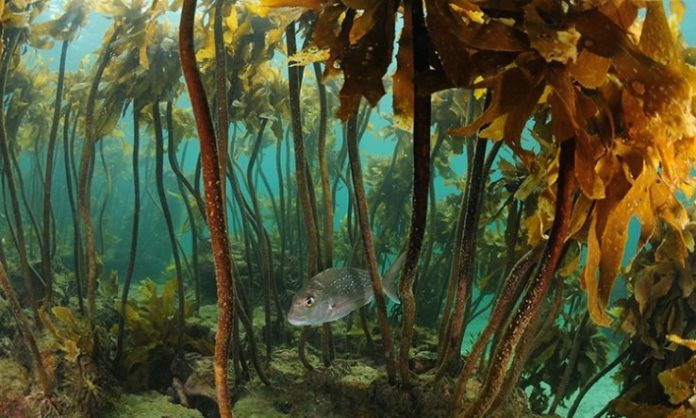
Voice for Nature with Ines Stager
Each year at the beginning of March, Seaweek is celebrated in various parts of New Zealand. Activities during the week aim to increase awareness of the values of ocean ecosystems and to promote a sustainable future.
The ocean provides various resources for us. It is a place to harvest food, such as fish, shellfish, seaweed, and sea salt. There are plenty of recreational opportunities — swimming, kayaking, surfing, boating, beach combing and so on.
The interface between the land and the ocean is visited by vast numbers of people, especially during the summer.
We are not very kind to the ocean. Threats from land activities are plentiful: sedimentation as a result of earth movement and flooding results in loss of aquatic plants and animals, particularly in estuaries, as does urban development through reclaiming land; land-based sources of pollution in waterways; plastic and micro plastics; and ocean acidification, a result of climatic changes.
At the interface between the land and the ocean, inappropriate use of vehicles by people driving in sensitive areas, or dogs roaming freely, chasing birds away in their own habitats, all have potential adverse effects on these specialised ecosystems.
Introduction of unwanted marine organisms is another challenge which negatively affects the ocean. Visiting ships may accidentally introduce pests, and ballast water may contain undesirable organisms. This is being exacerbated by increased shipping traffic. In the Hauraki Gulf and the Bay of Islands, the exotic caulerpa seaweed has been found. It can spread rapidly and has the potential to affect native species. Fishers and boat users are urged to help stop the spread.
While not all invasive species survive, the ones that do pose a challenge. They may be impossible to be removed and are likely to out-compete native species. Therefore, marine invasive species pose an ecological and economic threat to Pacific nations.
Culturally and economically important species such as pāua, kina, rock lobster and near-shore finfish make New Zealand’s seaweed-dominated rocky reefs their home. Marine heatwaves that we have experienced for many years are stressing our kelp forests. These underwater forests provide an important buffer along our coastlines, through the reduction of wave energy. They improve water quality, provide habitat and shelter to many species and provide habitat for reproduction.
Globally, kelp forests are disappearing. Sedimentation smothers these forests of the sea. Overfishing has a detrimental effect on kelp. When numbers of crayfish and snapper are down, kina numbers explode, and they decimate the bulk of this important lifeline of the ocean. Rising ocean temperatures, a result of climate change, also affect kelp. One hectare of kelp absorbs up to 52 tonnes of carbon; as a comparison, one hectare of pine forest only absorbs half of this amount.
Dr Chris Cornwall, lecturer at Victoria University, Wellington, will address the South Canterbury branch of Forest & Bird at St John’s Church hall in Timaru tonight at 7.30pm.
The ecology of New Zealand’s rocky reefs has been a life-long passion of Dr Cornwall’s. His research focuses on predicting species and habitat-specific responses of temperate rocky reef and tropical coral reef species to the effects of climate change.
Even if we don’t live on or near the coast, we all have a duty to prevent adverse effects on the ocean.
Ines Stager is a landscape architect based in Geraldine, and a committee member of the local branch of the Royal Forest & Bird Protection Society.




